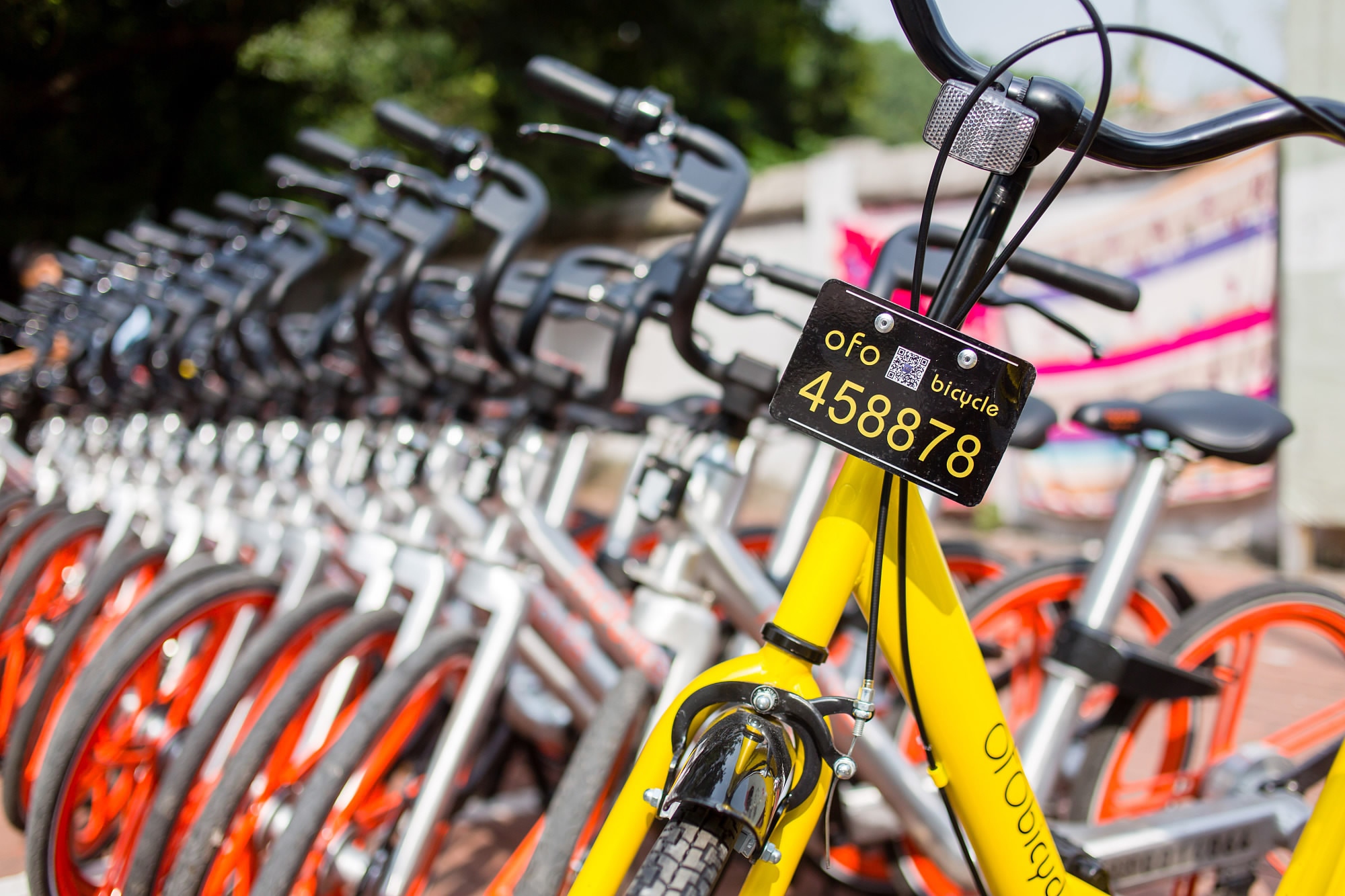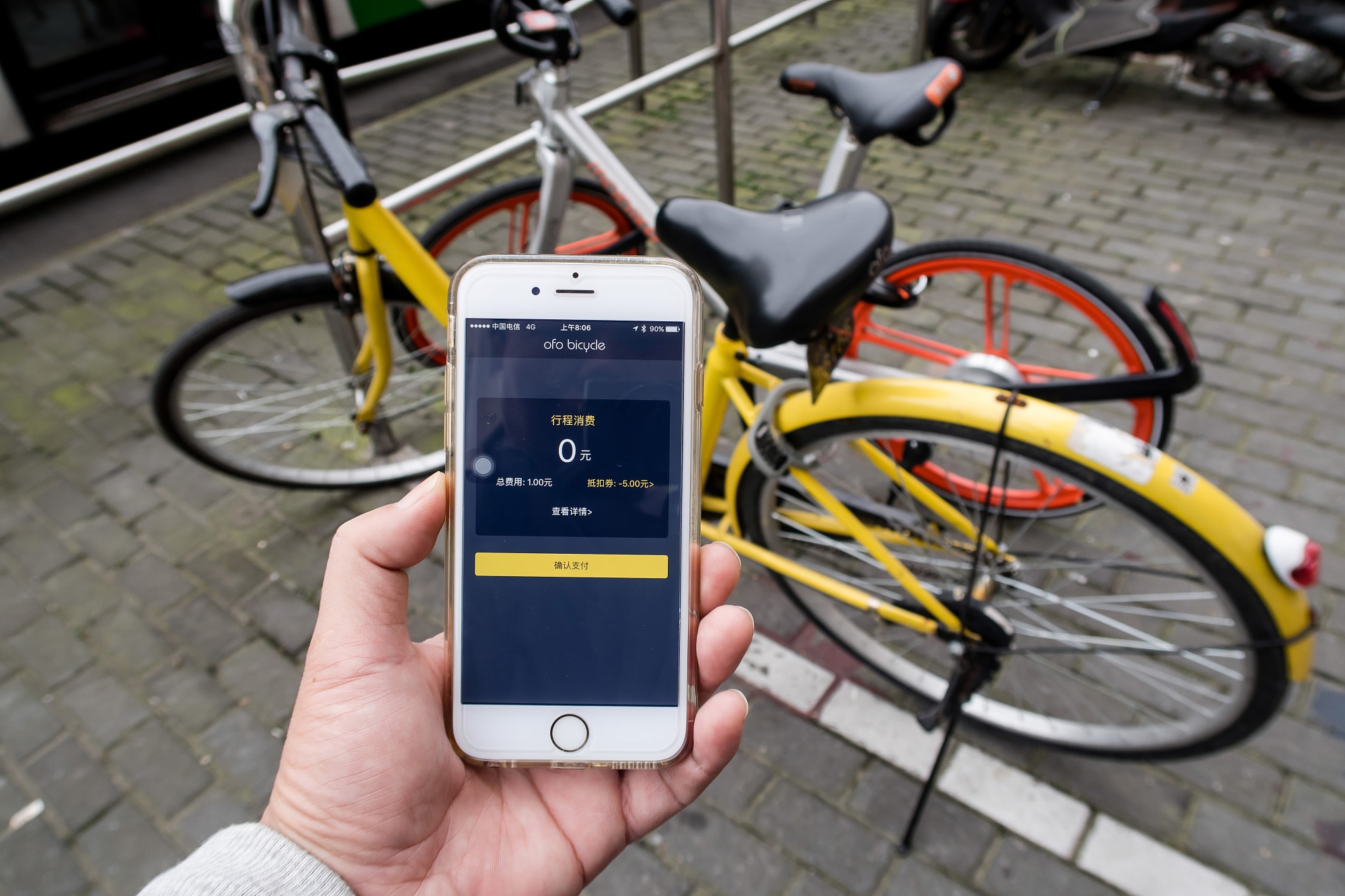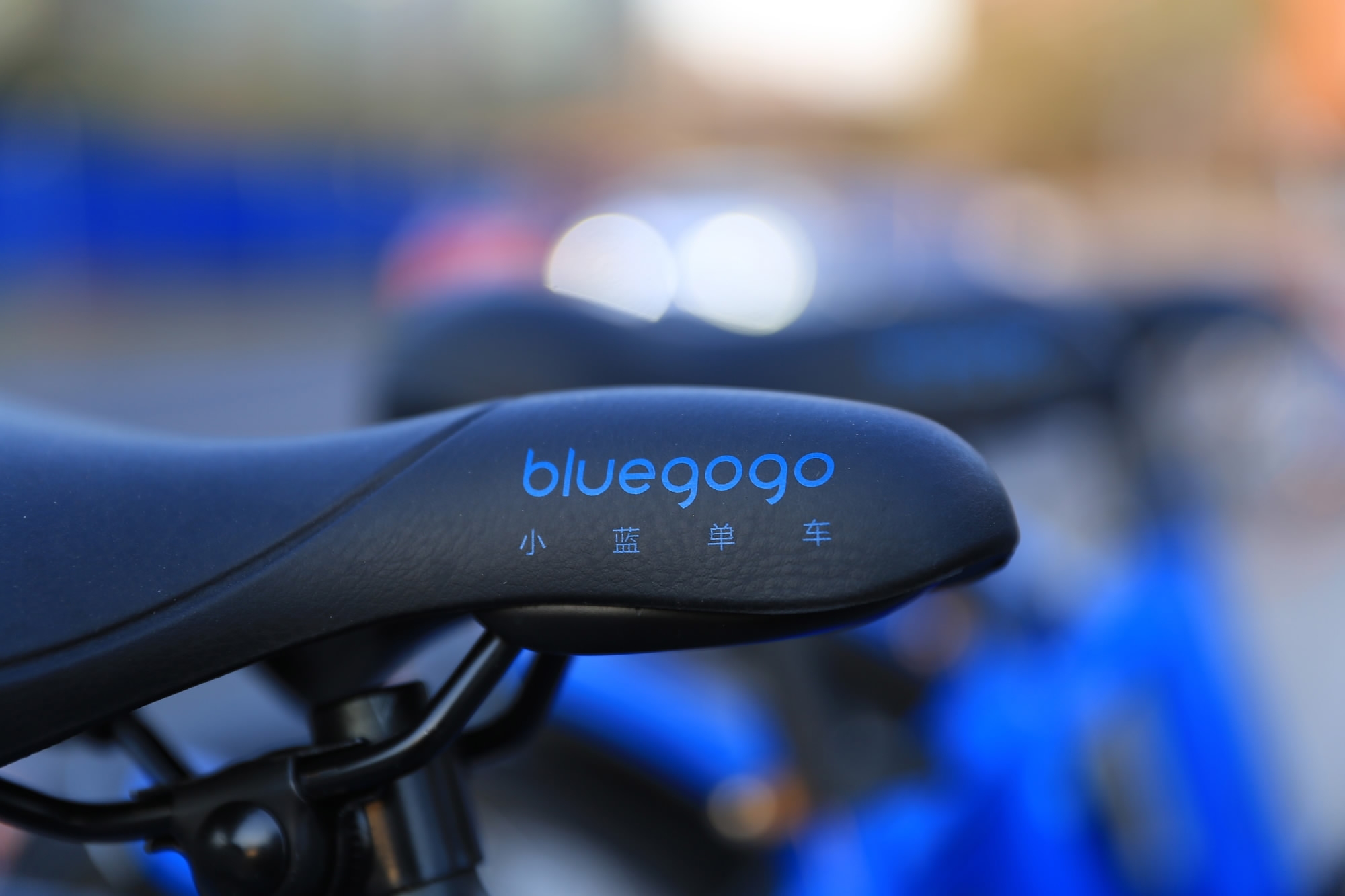By CGTN's Chen Chen
Chinese bike-sharing startups are pedalling overseas to countries like the US, Singapore and the UK, leading the world in phone integration in everyday lives.
Chinese bike-sharing company ofo, which is valued at over one billion US dollars, now operates in the US, UK and Singapore as well as Chinese cities, while its Tencent-backed rival Mobike is making Singapore its first market outside China.

Bike-sharing cycles ofo and Mobike. /CFP Photo
The two bike-sharing giants in China are not the only ones hitting overseas markets; newcomer bluegogo has launched in San Francisco.
The Chinese use their mobile phones more than citizens of any other country, from paying bills at local shops or restaurants, and mobile money transfers, ticketing, coupons, food delivery, to of course, transportation needs like bike-sharing and getting a cab.
Eighty-two percent of Chinese shoppers made purchases via their mobile phones during last year’s Singles Day spree, while only 36 percent of Americans shopped on a mobile phone on Black Friday last year, according to Forbes.

Mobile integration in bike-sharing economy. /CFP Photo
China gained the top spot for iOS App Store sales in 2016, according to mobile analytics company App Annie. The country's iOS revenue hit more than two billion US dollars in the last quarter of 2016.
While Chinese entrepreneurs are transforming the country’s manufacturing model and leading the innovation sector by presenting new sharing-economy business models, there have been obstacles from locals, such as complaints of bikes being scattered on streets.
The arrival of bikes from Chinese companies in the UK has led to complaints over discarded bikes that have cluttered popular destinations, instead of “traditional cycle-hire firms” that use docking stations, according to The Times. ofo, which is currently conducting a trial in Cambridge, said its staff would redistribute the cycles if necessary..

The bluegogo bikes aim to compete with rivals in market share both domestically and in overseas markets. /CFP Photo
Meanwhile, bluegogo drew sharp rebukes from city leaders when it announced plans to export its business model from China to the US. Having adapted to the local rules, San Francisco customers must ride from station to station, rather than dropping bikes off wherever they want.
Despite occasional difficulties, China is surging ahead of the world in mobile integration, according to Zhao Ziming, an analyst at Beijing-based consultancy Analysys.
"As the world's biggest smartphone market, China has led the world in the abundance of apps and offering better user experiences," Zhao told China Daily.
Related stories:









